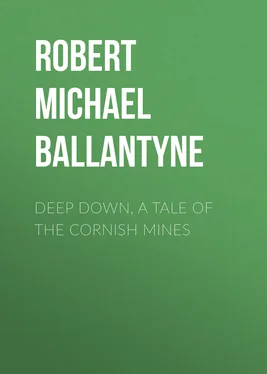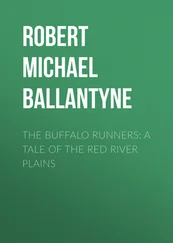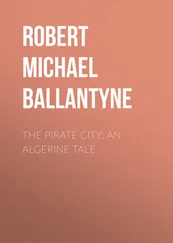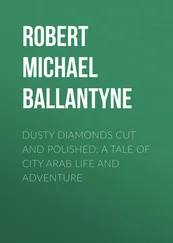Robert Michael Ballantyne - Deep Down, a Tale of the Cornish Mines
Здесь есть возможность читать онлайн «Robert Michael Ballantyne - Deep Down, a Tale of the Cornish Mines» — ознакомительный отрывок электронной книги совершенно бесплатно, а после прочтения отрывка купить полную версию. В некоторых случаях можно слушать аудио, скачать через торрент в формате fb2 и присутствует краткое содержание. Жанр: foreign_children, literature_19, foreign_antique, foreign_prose, на английском языке. Описание произведения, (предисловие) а так же отзывы посетителей доступны на портале библиотеки ЛибКат.
- Название:Deep Down, a Tale of the Cornish Mines
- Автор:
- Жанр:
- Год:неизвестен
- ISBN:нет данных
- Рейтинг книги:4 / 5. Голосов: 1
-
Избранное:Добавить в избранное
- Отзывы:
-
Ваша оценка:
- 80
- 1
- 2
- 3
- 4
- 5
Deep Down, a Tale of the Cornish Mines: краткое содержание, описание и аннотация
Предлагаем к чтению аннотацию, описание, краткое содержание или предисловие (зависит от того, что написал сам автор книги «Deep Down, a Tale of the Cornish Mines»). Если вы не нашли необходимую информацию о книге — напишите в комментариях, мы постараемся отыскать её.
Deep Down, a Tale of the Cornish Mines — читать онлайн ознакомительный отрывок
Ниже представлен текст книги, разбитый по страницам. Система сохранения места последней прочитанной страницы, позволяет с удобством читать онлайн бесплатно книгу «Deep Down, a Tale of the Cornish Mines», без необходимости каждый раз заново искать на чём Вы остановились. Поставьте закладку, и сможете в любой момент перейти на страницу, на которой закончили чтение.
Интервал:
Закладка:
Over his head rolled the billows of the Atlantic; the whistling wind howled among the wild cliffs of the Cornish coast, but they did not break the deep silence of the miner’s place of midnight toil. Heaven’s artillery was rending the sky, and causing the hearts of men to beat slow with awe. The great boulders ground the pebbles into sand as they crashed to and fro above him, but he heard them not—or if he did, the sound reached him as a deep-toned mysterious murmur, for, being in one of the low levels, with many fathoms of solid rock between him and the bottom of the superincumbent sea, he was beyond the reach of such disturbing influences, tremendous though they were.
The miner was making a final effort at his unproductive piece of rock, and had prolonged his toil far into the night.
Hour after hour he wrought almost without a moment’s respite, save for the purpose, now and then, of trimming his candle. When his right arm grew tired, he passed the hammer swiftly to his left hand, and, turning the borer with his right, continued to work with renewed vigour.
At last he paused, and looking over his shoulder called out— “Zackey, booy.”
The sound died away in a hollow echo through the retiring galleries of the mine, but there was no reply.
“Zackey, booy, are ’ee slaipin’?” he repeated.
A small reddish-coloured bundle, which lay in a recess close at hand, uncoiled itself like a hedgehog, and, yawning vociferously, sat up, revealing the fact that the bundle was a boy.
“Ded ’ee call, uncle?” asked the boy in a sleepy tone.
“Iss did I,” said the man; “fetch me the powder an’ fuse, my son.”
The lad rose, and, fetching out of a dark corner the articles required, assisted in charging the hole which his uncle had just finished boring. This was the last hole which the man intended to blast that night. For weeks past he had laboured day after day—sometimes, as on the present occasion, at night—and had removed many tons of rock, without procuring either tin or copper sufficient to repay him for his toil, so that he resolved to give it up and remove to a more hopeful part of the mine, or betake himself to another mine altogether. He had now bored his last hole, and was about to blast it. Applying his candle to the end of the fuse, he hastened along the level to a sufficient distance to afford security, warning his nephew as he passed.
Zackey leaped up, and, scrambling over the débris with which the bottom of the level was covered, made good his retreat. About a minute they waited in expectancy. Suddenly there was a bright blinding flash, which lit up the rugged sides of the mine, and revealed its cavernous ramifications and black depths. This was accompanied by a dull smothered report and a crash of falling rock, together with a shower of débris. Instantly the whole place was in profound darkness.
“Aw, booy,” exclaimed the miner; “we was too near. It have knacked us in the dark.”
“So’t have, uncle; I’ll go an’ search for the box.”
“Do, my son,” said David.
In those days lucifer matches had not been invented, and light had to be struck by means of flint, steel, and tinder. The process was tedious compared with the rapid action of congreves and vestas in the present day. The man chipped away for full three minutes before he succeeded in relighting his candle. This done, the rock was examined.
“Bad still, Uncle David?” inquired the boy.
“Iss, Zackey Maggot, so we’ll knack’n, and try the higher mine to-morrow.” Having come to this conclusion Uncle David threw down the mass of rock which he held in his brawny hands, and, picking up his implements, said, “Get the tools, booy, and lev us go to grass.”
Zackey, who had been in the mine all day, and was tired, tied his tools at each end of a rope, so that they might be slung over his shoulder and leave his hands free. Trevarrow treated his in the same way, and, removing his candle from the wall, fixed it on the front of his hat by the simple process of sticking thereto the lump of clay to which it was attached. Zackey having fixed his candle in the same manner, both of them put on their red-stained flannel shirts and linen coats, and traversed the level until they reached the bottom of the ladder-shaft. Here they paused for a few moments before commencing the long wearisome ascent of almost perpendicular ladders by which the miners descended to their work or returned “to grass,” as they termed the act of returning to the surface.
It cost them more than half an hour of steady climbing before they reached the upper part of the shaft and became aware that a storm was raging in the regions above. On emerging from the mouth of the shaft or “ladder road,” man and boy were in a profuse perspiration, and the sharp gale warned them to hasten to the moor-house at full speed.
Moor-houses were little buildings in which miners were wont to change their wet underground garments for dry clothes. Some of these used to be at a considerable distance from the shafts, and the men were often injured while going to them from the mine, by being exposed in an overheated state to cutting winds. Many a stout able-bodied miner has had a chill given him in this way which has resulted in premature death. Moor-houses have now been replaced by large drying-houses, near the mouths of shafts, where every convenience is provided for the men drying their wet garments and washing their persons on coming to the surface.
Having changed their clothes, uncle and nephew hastened to St. Just, where they dwelt in the cottage of Maggot, the blacksmith. This man, who has already been introduced to the reader, was brother-in-law to David, and father to Zackey.
When David Trevarrow entered his brother-in-law’s cottage, and told him of his bad fortune, and of his resolution to try his luck next day in the higher mine, little did he imagine that his change of purpose was to be the first step in a succession of causes which were destined to result, at no very distant period, in great changes of fortune to some of his friends in St. Just, as well as to many others in the county.
Chapter Five.
Describes a Wreck and some of its Consequences
While the miner had been pursuing his toilsome work in the solitude and silence of the level under the sea, as already described, a noble ship was leaping over the Atlantic waves—homeward bound—to Old England.
She was an East-Indiaman, under close-reefed sails, and although she bent low before the gale so that the waves almost curled over her lee bulwarks, she rose buoyantly like a seagull, for she was a good ship, stout of plank and sound of timber, with sails and cordage to match.
Naturally, in such a storm, those on board were anxious, for they knew that they were drawing near to land, and that “dear Old England” had an ugly seaboard in these parts—a coast not to be too closely hugged in what the captain styled “dirty weather, with a whole gale from the west’ard,” so a good lookout was kept. Sharp eyes were in the foretop looking out for the guiding rays of the Long-ships lighthouse, which illumine that part of our rocky shores to warn the mariner of danger and direct him to a safe harbour. The captain stood on the “foge’s’l” with stern gaze and compressed lip. The chart had been consulted, the bearings correctly noted, calculations made, and leeway allowed for. Everything in fact that could be done by a commander who knew his duty had been done for the safety of the ship—so would the captain have said probably, had he lived to be questioned as to the management of his vessel. But everything had not been done. The lead, strange to say, had not been hove. It was ready to heave, but the order was delayed. Unaccountable fatality! The only safe guide that remained to the good ship on that wild night was held in abeyance. It was deemed unnecessary to heave it yet, or it was troublesome, and they would wait till nearer the land. No one now can tell the reasons that influenced the captain, but the lead was not used . Owing to similar delay or neglect, hundreds upon hundreds of ships have been lost, and thousands of human lives have been sacrificed!
Читать дальшеИнтервал:
Закладка:
Похожие книги на «Deep Down, a Tale of the Cornish Mines»
Представляем Вашему вниманию похожие книги на «Deep Down, a Tale of the Cornish Mines» списком для выбора. Мы отобрали схожую по названию и смыслу литературу в надежде предоставить читателям больше вариантов отыскать новые, интересные, ещё непрочитанные произведения.
Обсуждение, отзывы о книге «Deep Down, a Tale of the Cornish Mines» и просто собственные мнения читателей. Оставьте ваши комментарии, напишите, что Вы думаете о произведении, его смысле или главных героях. Укажите что конкретно понравилось, а что нет, и почему Вы так считаете.












